|
Books Should Be Free Loyal Books Free Public Domain Audiobooks & eBook Downloads |
|
|
Books Should Be Free Loyal Books Free Public Domain Audiobooks & eBook Downloads |
|
Short Stories |
|---|
|
Book type:
Sort by:
View by:
|
By: F. Scott Fitzgerald (1896-1940) | |
|---|---|
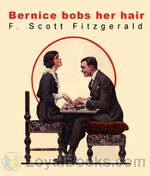 Bernice Bobs Her Hair
Bernice Bobs Her Hair
Pretty but socially clueless Bernice lets her know-it-all cousin push her around, but eventually, something's gotta give! (Introduction by BellonaTimes) | |
By: Baroness Emmuska Orczy (1865-1947) | |
|---|---|
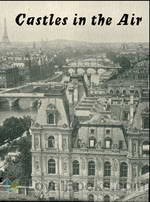 Castles in the Air
Castles in the Air
Baroness Emma Orczy (full name: Emma (”Emmuska”) Magdolna Rozália Mária Jozefa Borbála Orczy de Orczi) (September 23, 1865 – November 12, 1947) was a British novelist, playwright and artist of Hungarian noble origin. She was most notable for her series of novels featuring the Scarlet Pimpernel. Castles in the Air, a short novel or perhaps more like a collection of short stories with memories of a French rogue in the early 19th century Paris, was published in 1921 and about it I quote from the foreword: In very truth my good friend Ratichon is an unblushing liar, thief, a forger–anything you will; his vanity is past belief, his scruples are non-existent... | |
By: Henry James (1843-1916) | |
|---|---|
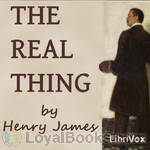 The Real Thing
The Real Thing
The Real Thing is, on one level, a somewhat ironic tale of an artist and two rather particular models. Yet it also raises questions about the relationship between the notion of reality in our humdrum world, and the means that an artist must use in trying to achieve, or reflect, that reality. Though the protagonist is an artist and illustrator of books, not a writer, it's not hard to imagine that James has himself, and other writers, in mind. | |
 Some Short Stories [by Henry James]
Some Short Stories [by Henry James]
| |
 Four Meetings
Four Meetings
| |
By: Anthony Trollope (1815-1882) | |
|---|---|
 Aaron Trow
Aaron Trow
What is it like to be a fox hunted by hounds? We find out through the senses of an escaped convict as he struggles to free himself from would-be captors. The struggle is brutal. In the end, we are left wondering which person really wins--the pursued or the pursuer. Or perhaps which one is now the pursuer, which the pursued. | |
 An Unprotected Female at the Pyramids
An Unprotected Female at the Pyramids
| |
 The Courtship of Susan Bell
The Courtship of Susan Bell
| |
 The Mistletoe Bough
The Mistletoe Bough
| |
 The Man Who Kept His Money in a Box
The Man Who Kept His Money in a Box
| |
 The Parson's Daughter of Oxney Colne
The Parson's Daughter of Oxney Colne
| |
 A Ride Across Palestine
A Ride Across Palestine
| |
 Returning Home
Returning Home
| |
 Miss Sarah Jack of Spanish Town, Jamaica
Miss Sarah Jack of Spanish Town, Jamaica
| |
 Relics of General Chasse
Relics of General Chasse
| |
 The House of Heine Brothers
The House of Heine Brothers
| |
 John Bull on the Guadalquivir
John Bull on the Guadalquivir
| |
 La Mere Bauche
La Mere Bauche
| |
 O'Conors of Castle Conor
O'Conors of Castle Conor
| |
 Mrs. General Talboys
Mrs. General Talboys
| |
 George Walker at Suez
George Walker at Suez
| |
By: Fyodor Dostoyevsky (1821-1881) | |
|---|---|
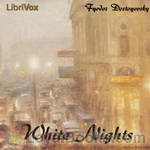 White Nights & Other Stories
White Nights & Other Stories
White Nights and Other Stories by Fyodor Dostoyevsky is a compilation published in 1918 by The MacMillan Company, NY (USA) and Heinemann (UK). It contains these 7 works:- White Nights- Notes from the Underground- A Faint Heart- A Christmas Tree and a Wedding- Polzunkov- A Little Hero- Mr. Prohartchin | |
By: William Patten (1868-1946) | |
|---|---|
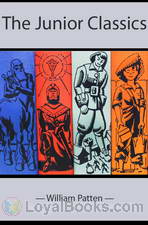 The Junior Classics
The Junior Classics
The purpose of The Junior Classics is to provide, in ten volumes containing about five thousand pages, a classified collection of tales, stories, and poems, both ancient and modern, suitable for boys and girls of from six to sixteen years of age. | |
 Short Story Classics (American)
Short Story Classics (American)
MANUAL OF SURGERY, OXFORD MEDICAL PUBLICATIONSBY ALEXIS THOMSON, F.R.C.S.Ed.PREFACE TO SIXTH EDITION Much has happened since this Manual was last revised, and many surgical lessons have been learned in the hard school of war. Some may yet have to be unlearned, and others have but little bearing on the problems presented to the civilian surgeon. Save in its broadest principles, the surgery of warfare is a thing apart from the general surgery of civil life, and the exhaustive literature now available on every aspect of it makes it unnecessary that it should receive detailed consideration in a manual for students... | |
By: Various | |
|---|---|
 International Short Stories Volume 1: American Stories
International Short Stories Volume 1: American Stories
The first volume of a 3 volume anthology, this work focuses on American short stories and draws from Nathaniel Hawthorne, Anna Katherine Greene, James Fenimore Cooper, Edgar Allan Poe and many other favorites. Topics range from historical to science fiction, melodramatic to philosophic. | |
By: Walt Whitman (1819-1892) | |
|---|---|
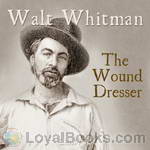 The Wound Dresser
The Wound Dresser
The Wound Dresser is a series of letters written from the hospitals in Washington by Walt Whitman during the War of the Rebellion to The New York Times, the Brooklyn Eagle and his mother, edited by Richard Maurice Burke, M.D., one of Whitman's literary executors. | |
By: Edith Nesbit (1858-1924) | |
|---|---|
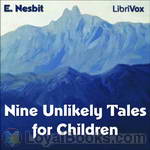 Nine Unlikely Tales for Children
Nine Unlikely Tales for Children
Nine original and, yes, unlikely fairy-tales, which include stories of the arithmetic fairy, the king who became a charming villa-residence and the dreadful automatic nagging machine. All are classic-Nesbit: charming, novel and not afraid to squeeze in a moral or two — told with proper fairy-tale style. Summary by Cori | |
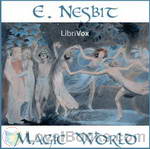 The Magic World
The Magic World
Talking cats, birds, fish and bells, wicked fairies, uglified princesses – adventure, magic, and more magic. A delightful collection of stories for children of all ages. The Magic World is an influential collection of twelve short stories by E. Nesbit. It was first published in book form in 1912 by Macmillan and Co. Ltd., with illustrations by H. R. Millar and Gerald Spencer Pryse. The stories, previously printed in magazines (like Blackie’s Children’s Annual), are typical of Nesbit’s arch, ironic, clever fantasies for children. | |
By: Julian Hawthorne, editor | |
|---|---|
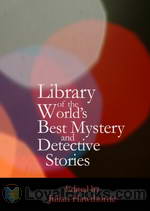 Library of the World's Best Mystery and Detective Stories
Library of the World's Best Mystery and Detective Stories
The Library of the World's Best Mystery and Detective Stories is a six-volume edition, which contains one hundred and one tales written by authors as diverse and separated by history as Pliny the Younger (first century AD), Voltaire (17th century) and Guy de Maupassant (19th century) and also from different parts of the world. This volume which is the first, contains twenty interesting stories, and an introduction by the editor. The fascinating aspect of mystery stories is that sometimes the author allows the puzzle to solve itself without expert detective aid, while in other cases, a sleuth bends his or her deductive powers to the mystery... | |
By: Andre Norton (1912-2005) | |
|---|---|
 All Cats Are Gray
All Cats Are Gray
| |
 The Gifts of Asti
The Gifts of Asti
| |
By: George Eliot (1819-1880) | |
|---|---|
 Brother Jacob
Brother Jacob
Brother Jacob is a short story by George Eliot, in which she explores the relationship between the selfish, self-centered and ambitious David Faux and his idiot brother, Jacob. | |